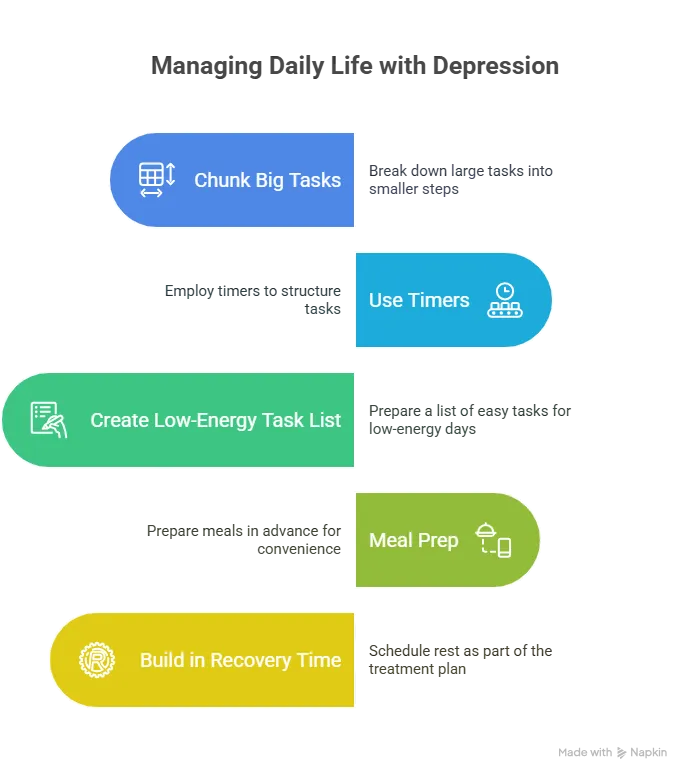Taking the first step toward depression therapy can feel intimidating, especially if you don’t know what to expect. The idea of opening up to a stranger about your most personal struggles may be enough to delay—or even avoid—scheduling that first appointment. At Dalliance Therapy Center in Parker, CO, we understand these fears, and we’re here to demystify the process. This article will walk you through what typically happens during your first therapy session and how to prepare for it, so you can show up feeling more confident and in control.
Understanding the Purpose of the First Session
Your initial therapy session is not about solving everything right away—it’s about building a foundation. Think of it as a collaborative starting point. The primary goals of this session are to understand your symptoms and emotional history, identify immediate challenges or risks (such as suicidal ideation or trauma triggers), and begin outlining your goals for therapy. It also serves to establish a sense of safety, comfort, and trust between you and your therapist. Therapy is just one piece—managing your energy and focus between sessions is equally important.
At Dalliance, we approach this session with empathy, curiosity, and zero judgment. You’re not expected to have perfect answers, and you won’t be pressured to talk about anything you’re not ready to share.

What Happens During Intake
Most first sessions begin with a clinical intake process, which may include both a verbal conversation and a few written forms. These help your therapist understand the nature and severity of your depression symptoms. You’ll likely be asked about the duration and intensity of your emotional distress, any changes in sleep, appetite, or energy levels, and any past mental health treatment or medical conditions. Current medications and psychiatric care are also discussed, along with your history of trauma, grief, or major life changes. This comprehensive view helps your therapist develop a working picture of your mental health and guides the selection of the most appropriate therapeutic approach, such as cognitive-behavioral therapy (CBT) or interpersonal therapy.
This session is also the time to address practical concerns, including scheduling preferences, insurance coverage, confidentiality, and what you hope to gain from therapy.
How to Prepare Emotionally
You don’t need to walk into therapy knowing exactly what to say, but preparing emotionally can help ease anxiety. Writing down your thoughts beforehand—whether symptoms, questions, or personal concerns—can give you something to refer back to during the conversation. It’s also helpful to remember that you’re in control. You get to decide how much you want to share, and your therapist will respect your boundaries. If you’re feeling nervous, say so. Therapists are trained to recognize and respond to emotional discomfort, and simply naming your anxiety can make the session more manageable.
Common Misconceptions About the First Session
Many people worry that therapy will feel like an interrogation or that they’ll be forced to relive painful memories right away. In truth, therapists work at your pace. They may ask questions to get a better understanding of your story, but you are never required to go further than you’re ready for. Another misconception is that you’ll be labeled with a diagnosis immediately. While your therapist may begin forming clinical impressions, an accurate assessment typically evolves over several sessions. Therapy is a journey, not a judgment.
What Happens After the First Session
At the end of your session, your therapist will typically reflect on what they’ve learned and outline a preliminary treatment plan. This may include:
- The recommended frequency of sessions, often weekly to start
- The type of therapy approach best suited to your needs
- Strategies to try between sessions, like journaling or relaxation techniques
- Whether medication or a psychiatric referral might be appropriate
You’ll also be invited to ask questions, clarify next steps, and schedule your follow-up appointment.
Healing Begins with Showing Up
Your first therapy session isn’t a lifelong commitment—it’s an invitation to begin healing. Whether you walk out feeling lighter, uncertain, or even emotionally drained, what matters most is that you showed up. Change begins with presence.
At Dalliance Therapy Center, we believe in meeting clients where they are, offering a space free of pressure and full of possibility. If you’ve been thinking about therapy but haven’t felt ready, remember this: there is no perfect time to start—but there is a right place. And we’re here when you are.



